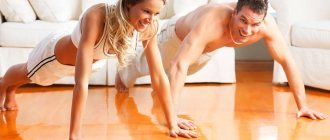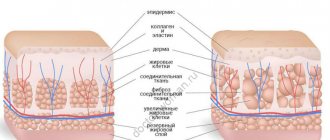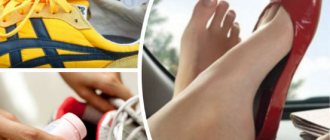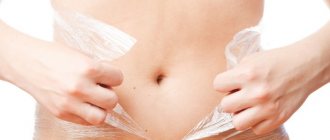Why does excessive sweating of the feet occur?
Why do my feet sweat? It would seem a simple question with a definite answer. Feet sweat from the elevated temperature of the environment where they are located.
Under such conditions, the sweat glands begin to work intensively, and the physiological mechanism of cooling the elevated temperature zone is automatically triggered.
Closed shoes made of synthetic materials cause increased sweating of the feet
Everything would be fine, but a favorable environment for microorganisms to live is created. They develop freely, providing themselves with the most comfortable living space.
The waste products and decomposition of microbes create an unbearable odor emanating from the feet. And this factor causes a lot of problems in everyday life.
What causes sweaty feet?
- lack or insufficient foot hygiene
- closed, uncomfortable shoes made of synthetic materials
- synthetic insoles in shoes
- wearing closed shoes in a warm room for a long time
- hormonal imbalances in the body
- some diseases (diabetes mellitus, cardiovascular diseases, fungus)
- stressful situations, anxiety
- increased physical activity
Increased sweating of the feet is observed even in children and adolescents
How to treat hyperhidrosis of the legs?
Self-diagnosing hyperhidrosis is very easy.
. You need to wipe your feet clean with soap and water. Then you should apply iodine in the form of a mesh to the foot and let it dry. Then sprinkle the leg with starch. If she turns blue, hyperhidrosis has occurred.
When physiological and everyday causes of hyperhidrosis are excluded, it is necessary to undergo an examination.
It includes a general and biochemical blood test, x-ray of the lungs, ultrasound of internal organs, ECG, blood tests for sugar, thyroid hormones, etc. Usually, for pathological reasons, sweating is present in other parts of the body, and not just on the feet.
Any shoes should be cleaned and dried daily, including from the inside, so that pathogenic bacteria do not accumulate in them!
Whatever the cause of the problem, it is important to change your shoes. It should be made of genuine leather or cotton fabric, and not synthetics that do not allow air and moisture to pass through. Shoes are chosen according to the season, and summer shoes have many holes. This way the air flow will become regular and your feet will sweat less. You need to change the insoles in your shoes more often, and wear only clean socks made from natural materials.
Foot care for sweaty feet
Non-medical ways to get rid of bad odor and excessive sweating of the feet are as follows:
- In the morning and evening, wash your feet with soap. The temperature of the water when washing should be gradually reduced.
- Use antibacterial soap, but do not overuse it, so as not to disrupt the local immune defense of the skin.
- After washing, do not put on socks for 15 minutes, let the skin dry thoroughly.
There are many antibacterial shoe deodorants sold in stores. Using them will help keep your shoes in good condition and prevent odors. Also popular are special foot deodorants that contain fragrances, aromatic oils, and antiseptics that reduce the appearance of odor and mask the “aroma.” There are also antiperspirant deodorants with aluminum, zinc, and zirconium salts that reduce sweat production. It is better to use them in courses, but not constantly - deodorants interfere with the removal of toxins and are far from useful.
Sweaty feet in children and adolescents
Feet sweat not only in adults, but also in small children and teenagers
- The most common factor that causes sweating of feet in children is uncomfortable shoes made of synthetic materials and rubber. It does not allow air to pass through and creates excellent conditions for the development of bacteria and fungus
- Socks and tights made of synthetics cause your feet to sweat
- Due to their age, young children and teenagers are very active. Sports activities and active games contribute to sweating in children
- Increased sweating is caused by taking certain groups of medications, increased psycho-emotional state, hormonal changes
- Failure to follow basic foot hygiene rules can cause increased sweating. These children usually have wet socks and cold extremities.
- Hot weather causes increased sweating
- Foods with spices can also cause sweating
Uncomfortable dress shoes often cause sweating
Recommendations for selection and care
Winter shoes, as well as demi-season or summer shoes, should be comfortable. If the size does not correspond to the length or width of a person’s foot, the model will squeeze it too much, or, conversely, “hang loose”. In both cases, increased sweating is possible. In addition, it is very important to choose high-quality socks and insoles that will be responsible for air circulation, and also to take care of your shoes seriously.
Socks
As you know, synthetic materials hardly allow air to pass through and do not absorb moisture well, so they are definitely not suitable for warm or closed sports shoes. It is better to wear cotton or linen socks, so the skin will fully “breathe”. Even if your feet sweat, the smell will still not appear, since the moisture will evaporate very quickly.
The only representative of the artificial line of fabrics that deserves attention is bamboo. Socks made from this raw material are ideal even for hot summers, since bamboo fiber can cool the body despite the ambient temperature. Such underwear is very pleasant to the touch, but it is not customary to wear it under insulated shoes. The use of warm woolen socks in winter is justified only if there is severe frost outside.
Bamboo
Cotton
Insoles
Often shoes do not allow enough air to pass through precisely because of the insoles. What to do and how to deal with it:
- Winter boots can be insulated with a pair of wool or fur insoles. Models made from sheep wool are especially good. A cheaper analogue is felt liners, which perfectly absorb moisture without deforming over time.
- Summer shoes are usually equipped with textile insoles. Some manufacturers impregnate them with special bactericidal agents, which allows you to wear your favorite sneakers or shoes on bare feet without fear of fungus. Latex inserts with the addition of activated carbon are also considered a good solution against sweating.
- For demi-season shoes, the ideal option is multi-layer leather insoles.
New insoles must have special holes for air circulation, clearly match the shoe size, be perfectly smooth, and made of a suitable material.
Do not use wrinkled or broken insoles. They do not provide uniform air circulation or control the temperature of the foot, so the feet may sweat locally, which increases the risk of developing fungus.
Leather
Fur
Textile
Shoes
It is impossible to say unequivocally what materials shoes should be made of. Here you need to rely on the individual characteristics of the person, taking into account his possible contraindications and intolerance. If you have problems with sweating, in the summer you need to choose light fabric shoes or special “breathable” models - for example, sneakers using mesh textiles. Of course, it is advisable to give preference to natural materials. A leather model will be much more comfortable than similar boots made of leatherette, and it is better to replace synthetic “dutik” with woolen felt boots.
Regardless of what season the shoes are intended for, they require careful care. The insoles should always be dry, and the soles should be free of cracks and holes. Between seasons, products should be stored in cardboard boxes or bags, after cleaning and drying them. To prevent your feet from sweating, don’t forget to treat your boots or sneakers with antibacterial agents before putting them away on the shelf. You can also use special absorbent bags, which are offered by shoe stores.
Felt boots
Leather
Mesh
Fabric
Sweaty feet in women
Female hyperhidrosis occurs for a number of reasons. We list the most common causes of female sweating of the feet.
- Fashionable shoe models, which are difficult for young girls to refuse, often have an uncomfortable last that impedes air exchange and restricts blood circulation. Artificial leather and insoles, rubber material and shoe soles cause excessive sweating
- Synthetic tights, socks and knee socks cause your feet to sweat and your legs to become damp and cold.
- Women often wear closed, warm shoes indoors for a long time. As a result, the feet sweat and discomfort is felt in the form of increased humidity and cooling of the feet.
Health-related causes of sweating feet in women:
- hereditary predisposition
- hormonal disorders,
- infectious diseases
- presence of a malignant tumor
- flat feet
- nervous disorders
- skin diseases
- excessive dieting
Daily foot hygiene and changing socks will help reduce sweaty feet
Sweaty feet in men
Excessive sweating of the feet is a problem for many men. It happens that the stronger sex finds itself in piquant situations due to sweating and strong foot odor.
It is believed that increased hyperhidrosis occurs in almost every man and this is inevitable for the male half. Is it so?
It often happens that daily foot washing with soap, air foot baths and a clean pair of socks eliminates the problem of sweating.
What affects hyperhidrosis of male legs?
- insufficient foot hygiene
- narrow, uncomfortable shoes made of synthetic materials
- active sports activities
- some illnesses and stressful situations
IMPORTANT: If you are concerned about excessive sweating of your feet, and daily foot hygiene, changing shoes and socks does not help eliminate this ailment, you should consult a doctor and have your health examined.
Top 10 Tips for Hyperhidrosis
Getting rid of hyperhidrosis of the feet is not easy, since it is often a feature of the body, and not a pathology. But you can significantly reduce sweating if you follow a number of rules:
- Keep an observation log - note situations after which or during which hyperhidrosis occurs. This will help you avoid them in the future.
- Wash your feet more often—patients with hyperhidrosis should do this twice a day. This uses cool water with the addition of essential oils with an antibacterial effect (eucalyptus, tea tree, etc.).
- Dry your feet thoroughly - if water lingers between your toes, it will be easier for pathological microflora to multiply.
- Use powders for feet and shoes - talcum powder with starch will also work, but it is better to buy specialized preparations at the pharmacy. They contain antibacterial and antifungal substances, which prevents odor.
- Apply antiperspirants to your feet - the procedure is carried out before bed, applying to dry, clean feet. First, the treatment is carried out daily for 3-4 evenings in a row, then the result is maintained once a week.
- Wear socks made from natural fabrics - you should choose cotton and linen.
- Change socks frequently - at least 2 times a day.
- Wear natural shoes - leather and suede allow air to pass through, which is why the foot is properly ventilated and sweat evaporates.
- Use antibacterial shoe insoles.
- Do not wear shoes for 2 days in a row, allowing the pair to dry.
If simple tips do not help, you can think about botulinum toxin injections to reduce the intensity of the sweat glands. The procedure has a number of contraindications, so it should be carried out under the supervision of a doctor and only after an in-person consultation.
When your feet sweat, you need to check with a dermatologist. You should not try to find the cause on your own, because often the fungus is invisible. And in its advanced form, the disease takes a long, expensive and difficult time to treat. You should not let this happen; it is better to consult a doctor in a timely manner.
Read also: Why do your hands sweat?
Dear patients!
Remember that only a qualified doctor can make an accurate diagnosis, determine the causes and nature of the disease, and prescribe effective treatment. You can make an appointment with our specialists or call a doctor at home by calling 8-(4822)-33-00-33 Be healthy and happy!
Pharmacy remedies for sweaty feet
Pharmacies provide a wide range of products that reduce foot sweating. These medicines have a disinfecting, drying and deodorizing effect. Let's look at the most popular pharmaceutical remedies for sweating.
Teymurova paste - a pharmaceutical preparation for sweating feet
Teymur paste contains boric acid, borax, zinc oxide, salicylic acid, methenamine, lead acetate, formaldehyde, peppermint oil. This is a well-known drug used to reduce sweating of the feet. Teymur paste has antibacterial, antifungal, drying and cooling effects.
Clean skin of the interdigital space is coated with paste several times a day. The course of treatment for foot hyperhidrosis is usually 15-30 days.
Formagel is a colorless gel containing 3.7% formaldehyde. The product reduces the activity of sweat glands. The gel is applied to clean skin of the feet and between the toes. After half an hour, the skin is washed with water and thoroughly dried with a towel. The effect of the drug is designed for 10-12 days. Then the procedure is repeated.
Burnt alum (potassium alum) is a natural antimicrobial, anti-inflammatory, drying, enveloping and hemostatic agent.
The drug eliminates sweating and relieves itching of the skin. Used as a powder. Sprinkle clean skin of problem areas with alum as needed.
Tablets for hyperhidrosis are used as prescribed by a doctor.
Test for foot hyperhidrosis – is there a problem?
The term “hyperhidrosis” in science represents a disease whose main symptom is increased (compared to normal) sweating. It appears regardless of air temperature due to excessive activity of the sweat glands directly on the feet.
According to statistics, every 2nd woman suffers from sweating feet.
Treatment of armpit hyperhidrosis - what is effective?
How to diagnose yourself - do you have foot hyperhidrosis?
Zinc ointment for sweaty feet
Ointments and pastes based on zinc oxide are time-tested pharmaceutical preparations that have proven their effectiveness in the fight against excessive sweating.
Zinc oxide is used to prepare ointments, pastes, mash, and liniments. The drug has a disinfecting and drying effect.
Zinc ointment is a time-tested remedy for foot hyperhidrosis
Zinc ointment 10% contains zinc oxide and medical petroleum jelly. The drug has an antiseptic, astringent, adsorbent and drying effect. The ointment is applied to clean skin prone to excessive sweating 2-3 times a day.
Salicylic-zinc paste or Lassara paste contains zinc oxide, salicylic acid, starch, petroleum jelly. Lubricate the interdigital spaces with the paste, applying the drug to clean areas of the skin.
Lassara paste is used for sweaty feet, as an old and proven remedy that dries the skin, relieves inflammation and irritation of the skin. The drug creates a protective barrier from external factors, adsorbs excess moisture and allows the skin to remain dry for a long time.
Home remedies for sweaty feet
Daily foot hygiene will help your feet look well-groomed and overcome excessive sweating. At home, you can effectively and affordably take care of your feet without resorting to the services of expensive beauty salons.
Foot baths, powders, pastes - all of these products are acceptable and will not take up much time in your daily foot care. In addition, these procedures are not only pleasant, but also help reduce sweating of the feet.
Foot baths are an effective way to reduce sweaty feet.
Foot baths with potassium permanganate
Pharmaceutical potassium permanganate dries the skin of the feet and has an antiseptic effect.
- Dissolve several crystals of potassium permanganate in warm water until they turn light pink.
- Soak your feet in a solution of potassium permanganate for 20 minutes
- Wipe your feet dry
Oak bark baths
Oak bark contains a tannin - tannin. The natural component has a bactericidal and astringent effect. Therefore, baths with oak bark will not only heal small cracks on the feet, but will also significantly reduce foot sweating.
Oak bark tannin will help eliminate excessive sweating of the feet
- Pour 200 g of oak bark into a liter of boiling water and cook over low heat for 20 minutes. This amount of decoction is enough for four procedures.
- Mix a glass of oak decoction with a liter of warm water
- Soak your feet in the resulting solution for 20 minutes.
Unused concentrated oak bark solution is stored in the refrigerator. Foot baths should be used daily for 10-14 days.
Oak bark powder
Pour finely crushed oak bark into socks. You can use oak bark powder to treat the spaces between your toes. This product perfectly absorbs sweat and neutralizes its odor.
Baths with soda, salt and iodine tincture
Foot baths with this composition are an excellent prevention against fungal diseases; the composition of the solution has an antiseptic and drying effect.
Dissolve a tablespoon of table salt and soda in a liter of hot water. Add 5-7 drops of an alcohol solution of 5% iodine. Soak your feet until the water cools completely.
An infusion of sage herb is used to reduce sweating in the form of foot baths and when taken orally.
Sage baths
Sage leaf has disinfectant and astringent properties. Herbal components affect hormonal levels and normalize sweating. In addition, foot baths with sage soften the skin and eliminate calluses.
- Steam 5 tablespoons of pharmaceutical sage with a liter of boiling water and keep on low heat for 15 minutes.
- Keep your feet in the warm infusion for 20 minutes.
To enhance the effect of reducing sweating, it is possible to combine the use of sage decoction internally and in the form of foot baths
For internal use: pour a tablespoon of sage into a glass of boiling water and leave for 15 minutes. Take 1 tablespoon three times a day.
You can make your own foot deodorant at home
Homemade deodorant recipe with rosemary, thyme and apple cider vinegar
Compound:
- thyme herb - 1 tablespoon
- rosemary herb - 1 tablespoon
- apple cider vinegar - 0.5 cups
- water - 1 glass
Preparation
- Steam thyme and rosemary with boiling water and cook over low heat for 15 minutes
- Once cooled, strain and add apple cider vinegar.
Place the solution in a spray bottle or simply moisten a cotton swab and treat areas of increased sweating several times a day.
Tea tree oil will effectively reduce foot sweating and neutralize sweat odor
Homemade deodorant with tea tree
Tea tree essential oil has long been famous for its bactericidal and antifungal properties. In addition, the natural elixir normalizes sweating and eliminates unpleasant foot odor.
Compound:
- tea tree oil - 10 drops
- water - 0.5 cups
Preparation
- Add 10 drops of tea tree to 100 ml of purified water
- Pour into a spray bottle
A paste of lemon juice and soda dries the skin and eliminates sweat odor
Lemon juice and baking soda paste
Lemon juice and sodium bicarbonate are the perfect combination of two ingredients. They not only reduce sweat production, but also have an antiseptic effect and neutralize the unpleasant odor of sweat.
Compound:
- lemon - 1 pc.
- baking soda - as much as needed
Preparation and use
- Squeeze the juice and lemon and mix with baking soda to obtain a paste mixture.
- Apply the resulting paste to the spaces between your toes.
- After 15 minutes, rinse with cool water and wipe your feet dry.
Dry foot deodorant can be made from cornstarch and baking soda.
Cornstarch and baking soda dusting
A successful combination of starch and soda will adsorb sweat and remove unpleasant odors. Feet treated with this powder will remain dry for a long time, without spreading an unwanted aroma.
Compound:
- corn starch - 1 tablespoon
- soda - 1 teaspoon
Preparation and use
- Mix baking soda with cornstarch in the given proportion
- Use the resulting dry deodorant as a powder for your feet and toes.
You can get rid of excessive sweating of the feet using cosmetics and home remedies.
The following are recognized as the best recipes for the treatment of sweating of the feet:
- Birch buds. Fill 5 tbsp of dry buds with vodka (0.5 l), put it in the refrigerator for 10 days, and shake occasionally. Afterwards, simply moisten a cotton pad with the tincture and wipe the feet and between the toes for at least 2 weeks.
- Oak bark. It is considered one of the best remedies. For 0.5 liters of water - 3 tbsp/l of crushed bark: boil for 15-20 minutes, cool, infuse, filter and make a warm foot bath (for washed, clean feet), diluting the infusion 1:1. Repeat every day for 1.5 weeks. 2nd option: boil 2 tbsp of bark in 1 liter of milk for 30 minutes, then strain, add a glass of hot water and also make a bath.
- Boric acid. We buy the powder at the pharmacy (costs about 30 rubles), pour it into a basin and trample on it, like sand on the beach, so that the acid gets between your fingers. Next, without washing off the product, put on cotton socks and go to bed. The number of procedures is 10-15.
- Eggs with butter. Mix 1 tbsp vegetable oil + 1 egg (preferably in a blender). Apply the mixture to your feet, wait 10 minutes, put on cotton socks and go to bed. The number of procedures is 10-15.
- Beer. Heat 2 liters of water, add a bottle of beer to taste (any) and steam your feet for 10-15 minutes before bed. Course - 21 days.
- Soda. For 1 glass of warm water - 1 tbsp of soda. Next, moisten gauze wipes with the solution and apply to the feet and spaces between the toes for 1 hour. Afterwards, wash your feet with cool water. Course - 2 weeks.
- Rice. Boil 1 cup of rice in 1 liter of water, leave in a saucepan wrapped in a towel for 3-5 hours. Next, add the broth to 1 liter of hot water and lower the legs for 30 minutes. Afterwards we wipe it dry, pour 1 liter of dry mustard into our socks and go to bed. Course - from 2 weeks.
- Apple cider vinegar 9% . Day and morning, simply wipe with this product (using a cotton pad) on your feet and between your toes. At night we make a bath out of it: for 1 liter of warm water - ½ cup of vinegar. We steam the legs for 15-20 minutes. and wait for them to dry on their own. Course - 21 days.
- Willow bark. Pour 5 tbsp of bark with 2 glasses of cold water, leave for 24 hours, filter and add to 1 liter of hot water in the bath. Steam the legs for 20 minutes before bed. Course - 10-15 days.
- Mint, calendula or rosehip. Take any of the herbs (dry) in a quantity of 5 tbsp/l, pour 1 liter of boiling water, cool immediately after boiling, infuse and then add to the foot bath. Course - 3-4 weeks. You can also cook pasta. Mix the decoction with honey (5 tbsp) and apply it to your feet as a “compress” for half an hour.
- Potassium permanganate. For a hot foot bath, add 5-7 drops of the product until the water turns pink. We hold the legs for 15 minutes. The course is as long as you like.
- Sage. For 2 glasses of water - 1 tbsp of dry herb. Pour boiling water, leave for 40 minutes, filter. Next, drink 2 tbsp once a day. Course - 3 weeks.
- Urotropin. We buy tablets at the pharmacy, grind them into powder and rub them into clean, dry skin of the feet.
- Another option with oak bark. We grind it into powder (or buy it already crushed), apply it to our feet (or pour it directly into our socks), put cotton socks on top and go to bed. In the morning we wash our feet with cool water.
- Oats, barley or sage. Pour the powdered grass directly into your socks, put them on and go to bed. In the morning, rinse your feet with a cool sage decoction. Course - 3 weeks.
Of course, folk remedies will only help you if hyperhidrosis does not hide any serious illness.
How to get rid of sweaty feet at home: tips and reviews
It is possible to reduce excessive foot sweating at home. This is evidenced by numerous user reviews on the Internet.
What should you do to prevent your feet from sweating?
- Wash your feet twice a day every day. Dry your feet with a soft towel, remember to thoroughly wipe away any moisture between your toes.
- In case of excessive sweating, give your feet a cycle of herbal baths that reduce sweating
- Use special products and foot powders that absorb excess moisture and sweat. In addition, such products eliminate unpleasant odors.
- In the summer, do not wear closed shoes, but use open shoes that provide good ventilation of the feet
- You should choose high-quality shoes made from natural materials
- Feet should be kept dry and comfortably warm
If you sweat excessively, you should disinfect your shoes and get rid of the smell.
And finally, we’ll share one more useful tip.
How to disinfect shoes and remove unpleasant odors?
- Soak a cotton swab in hydrogen peroxide solution and wipe the inside of the shoe
- Then soak another cotton swab with alcohol and thoroughly treat the inside of the shoes.
- After this, the shoes should be ventilated and dried.
- Place a bag of flavored dry tea into the treated shoes
Prevention
To prevent the appearance of an unpleasant odor in shoes in winter, you should place them under a radiator or simply in a dry, warm place so that the products dry well . In addition, it is necessary to treat boots or shoes with special antibacterial solutions and do not leave wet insoles inside. In summer, walking barefoot on the sea sand will be a useful preventive procedure. Socks should be washed daily, and insoles should be changed 1-2 times a year.
If there is a lack of calcium in the body, increased sweating of the feet is also possible, so it is necessary to replenish its amount by taking appropriate medications or products (hard cheeses, milk, sesame seeds, almonds, garlic, sardines in oil).
It is important to choose suitable shoes in which your feet do not sweat due to lack of air circulation. You should give preference to products made from natural materials, and in the summer - open or perforated models. It is not recommended to wear closed shoes or boots without socks - your feet may become very sweaty, prohibit, and also develop calluses and wounds. In addition, it is necessary to keep your feet and shoes clean, and to avoid developing a fungal infection, do not walk barefoot on dirty floors.
Using deodorant
Enriching the body with calcium
Periodic replacement of insoles
Regular drying of shoes
Air circulation











